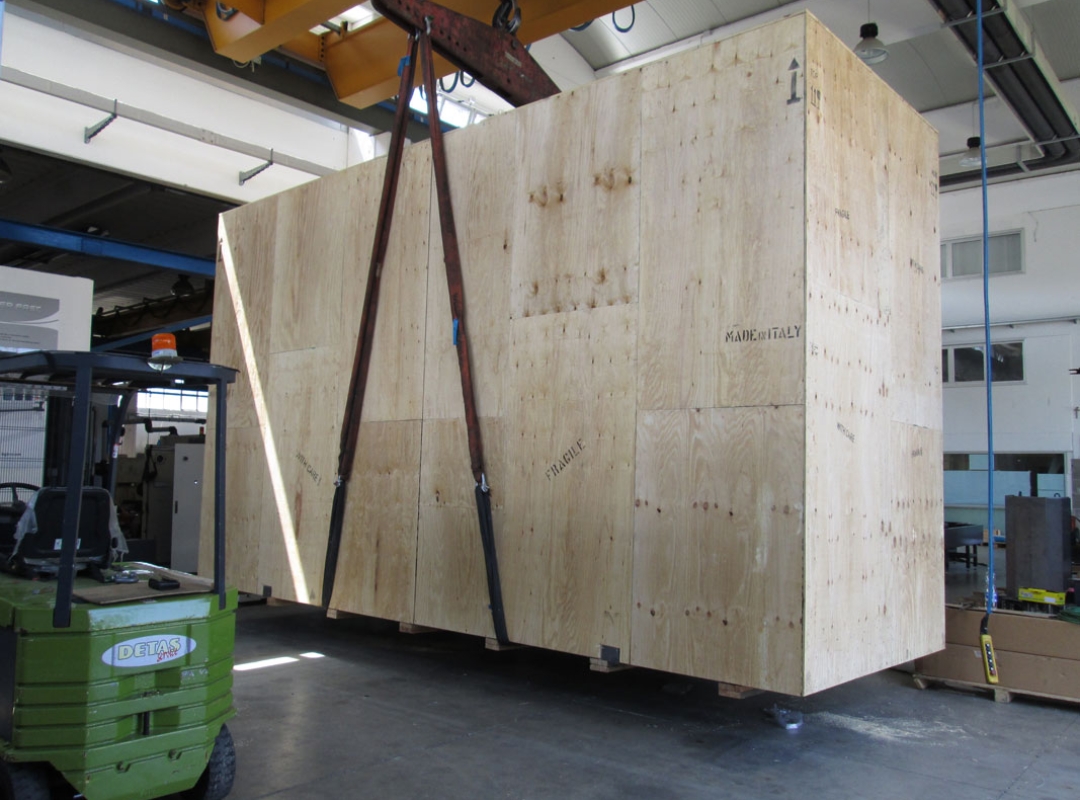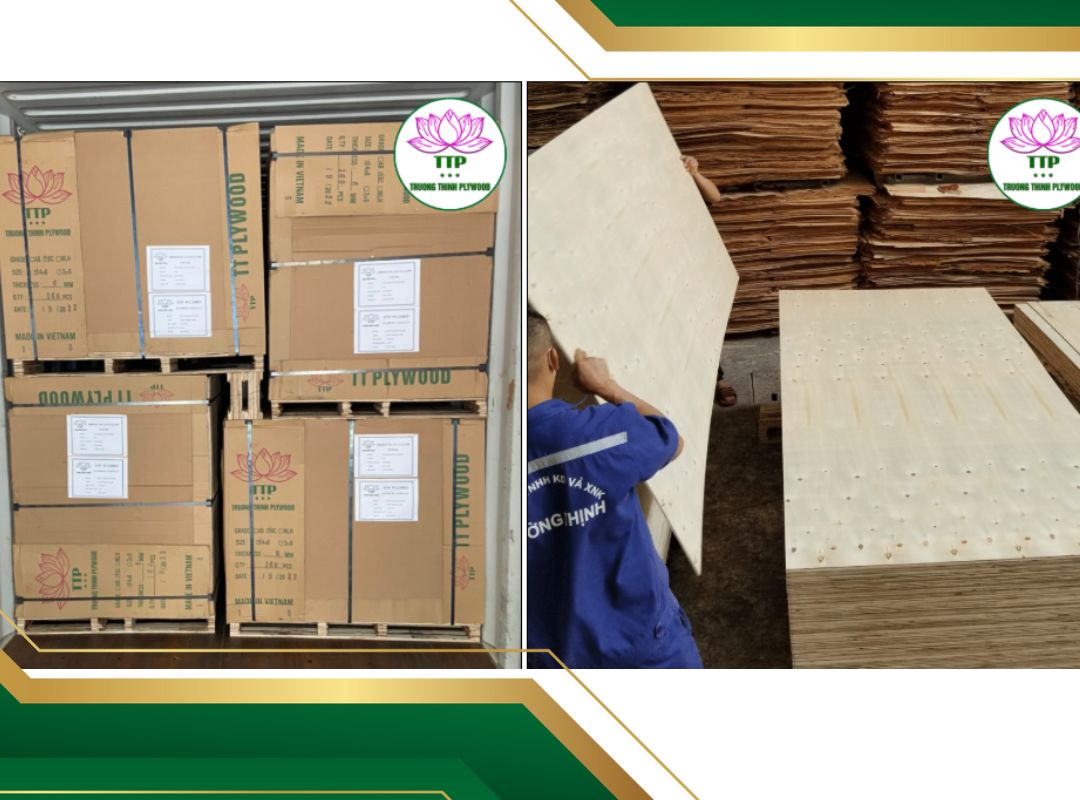-
-
-
Total payment:
-

The Future of plywood in the packaging Industry: Trends and opportunities for growth
Posted by Kiều Trang at 19/11/2024
The packaging industry is undergoing a transformation, driven by the global demand for sustainable packaging in regions like Europe, the United States, and the UAE. Plywood, a versatile and eco-friendly material made from layered wood veneer, is emerging as a leading solution. As businesses and consumers prioritize green packaging solutions, plywood offers a renewable, biodegradable alternative to plastic, cardboard, and metal. This article explores the trends, environmental benefits, and growth opportunities for plywood packaging, highlighting its potential to reshape the industry and concluding with why suppliers like TT Plywood from Vietnam are a smart choice.
Why Plywood? A Sustainable and Versatile Choice
Plywood’s strength, durability, and environmental credentials make it ideal for modern packaging needs. Unlike plastic packaging, which contributes to pollution and faces regulatory bans, or cardboard packaging, which often lacks durability, plywood is sourced from renewable timber and decomposes naturally. In Europe, the EU’s Green Deal pushes for sustainable practices, while the UAE’s Vision 2021 emphasizes green innovation. In the U.S., 65% of consumers prefer eco-friendly packaging, making plywood a compelling option for businesses aiming to meet these demands.
Comparison with Other Materials
Plywood outperforms traditional packaging materials in several ways:
- Plastic: Non-biodegradable, linked to microplastic pollution, and increasingly restricted in Europe and the U.S. Plywood is biodegradable and aligns with regulatory trends.
- Cardboard: Lightweight but prone to damage in humid conditions and often single-use. Plywood offers greater strength and reusability.
- Metal: Durable but heavy, expensive, and energy-intensive to produce. Plywood is lighter, more cost-effective, and has a lower carbon footprint.
Key Trends Driving Plywood’s Rise in Packaging

1. Sustainability and Environmental Responsibility
Sustainability is a top priority in Europe, the U.S, and the UAE, where consumers and regulators demand green packaging solutions. A 2023 survey found that 78% of European consumers and 65% of U.S. consumers prefer eco-friendly packaging. Plywood, sourced from FSC or PEFC-certified forests, supports responsible forestry practices. Unlike plastic packaging, which persists in landfills, plywood is recyclable and biodegradable, aligning with the UAE’s sustainability goals and Europe’s circular economy initiatives.
-
Key Benefits:
-
Sourced from sustainably managed forests, reducing environmental impact.
-
Biodegradable, unlike plastic, which contributes to long-term pollution.
-
Supports EU regulations and UAE’s Vision 2021 for sustainable development.
-
2. Innovations in Lightweight Plywood
Traditional plywood’s weight has been a challenge compared to cardboard packaging, but advancements in lightweight plywood maintain strength while reducing density. This makes it ideal for applications where shipping costs and carbon emissions are concerns, such as in the UAE’s logistics hub or U.S. e-commerce. European exporters are adopting lightweight plywood crates for their durability and cost-efficiency, offering a competitive edge over heavier materials like metal.
3. Circular Economy and Reusability
The circular economy, a key focus in Europe’s Circular Economy Action Plan, prioritizes reusable and recyclable materials. Plywood’s durability allows it to be reused multiple times, unlike single-use plastic packaging or fragile cardboard. Modular plywood crates can be disassembled and repurposed, reducing waste and costs. This reusability appeals to businesses in the UAE, where sustainable logistics is a priority, and in the U.S., where cost savings are critical.
4. Customization for Branding and Functionality
Plywood’s versatility enables tailored packaging solutions for industries like food, electronics, and luxury goods. Unlike rigid metal or flimsy cardboard, plywood can be cut, shaped, and treated to meet specific needs. In the U.S. and UAE, where branding is important, companies use plywood for premium packaging, such as gift boxes for wine or electronics, to create an eco-friendly, high-end image. Food-safe coatings make plywood suitable for sensitive applications, unlike untreated wood.
Opportunities for Growth in the Packaging Industry
1. Replacing Plastic and Non-Renewable Materials
With bans on single-use plastics in Europe and increasing restrictions in the U.S and UAE, plywood is a strong alternative to plastic packaging and non-recyclable composites. It can replace plastic clamshells, foam padding, and trays in food and pharmaceutical packaging. Plywood’s ability to be treated for hygiene standards gives it an edge over plastic, which poses contamination risks, creating growth potential in health-conscious markets.
2. E-Commerce and Last-Mile Delivery
The e-commerce boom, with online retail accounting for over 15% of U.S sales and growing in Europe and the UAE, demands durable yet sustainable packaging. Plywood’s strength ensures high-value items arrive undamaged, unlike cardboard packaging, which may tear. Its aesthetic appeal enhances the unboxing experience, a key factor in customer satisfaction, compared to plastic’s utilitarian look.
Key Opportunities:
- Protects fragile goods during shipping, reducing return costs.
- Offers premium aesthetics for e-commerce brands, unlike plastic or cardboard.
- Appeals to eco-conscious consumers in Europe and the UAE.
3. Strengthening Global Supply Chains
Plywood’s durability and local availability make it ideal for global shipping, particularly in Europe’s cross-border trade and the UAE’s logistics-driven economy. Unlike cardboard packaging, which degrades in harsh conditions, or expensive metal, plywood withstands rough handling. Its availability in many regions reduces reliance on volatile supply chains, offering stability for businesses.
Challenges and Solutions
Plywood’s higher upfront cost compared to cardboard can be a barrier, but its reusability and durability provide long-term savings. Quality consistency is addressed by partnering with certified suppliers adhering to international standards. Educating businesses about plywood’s environmental and economic benefits can shift perceptions, positioning it as a modern sustainable packaging solution.
Why Choose TT Plywood from Vietnam?

For businesses seeking high-quality plywood packaging, suppliers like TT Plywood from Vietnam offer compelling advantages. Vietnam is a global leader in plywood production, known for its sustainable practices and cost-effective products. TT Plywood stands out for its adherence to FSC and PEFC certifications, ensuring environmentally responsible sourcing that meets the demands of Europe, the U.S, and the UAE. Its competitive pricing and reliable quality make it an excellent choice for companies looking to adopt eco-friendly packaging without compromising on performance. Compared to plastic, which pollutes, or cardboard, which lacks durability, TT Plywood provides a sustainable, robust solution for global packaging needs.
Call to Action: Embrace Plywood for a Sustainable Future
The future of plywood packaging is bright, driven by the demand for sustainable packaging in Europe, the U.S., and the UAE. By adopting plywood, businesses can replace plastic packaging, outperform cardboard, and compete with metal while meeting environmental goals. Take the first step toward a greener future—partner with certified suppliers like TT Plywood from Vietnam to create durable, eco-friendly, and cost-effective packaging solutions that benefit your business and the planet.
Tags :
EXPORT PLYWOOD
in packaging industry
packing plywood
The future of plywood
Vietnamese plywood










